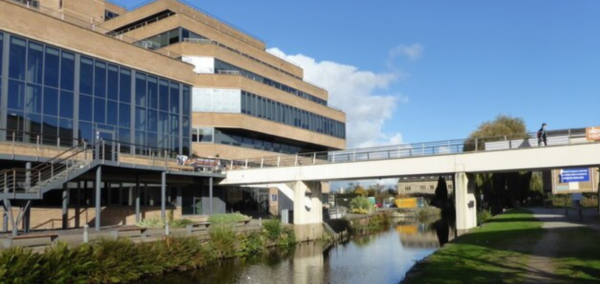
The ultimate year abroad survival guide: Tips from a London student who made it back alive
From navigating Visa applications to embracing culture shock
While studying abroad can be one of the most rewarding university experiences, it can also be one of the most stressful. After months of drowning in paperwork and Visa applications (thanks Brexit), it’s easy to forget all of the excitement that made you sign up in the first place.
To reinvigorate that excitement and take some stress out of the lengthy prep period, we’ve compiled a list of tips on how to prepare for your trip and make the most of the experience.
1. Don’t live alone

The easiest way to meet people is by living with them. It might feel risky moving in with strangers, but it’s no riskier than moving into first year halls, especially if you use student-frequented sites like HousingAnywhere, Spotahome or Uniplaces.
Even if you end up with a nightmare flatmate, is there any better way to bond with your other flatmates than having a common frustration to vent about? Getting home late at night is much safer when you’re going back to the same address too, and there’s nothing better than having your closest friends across the corridor for late night chats and spontaneous outings.
2. Don’t rely on confusing embassy websites
If you’re struggling with your visa application, the only advice you’ll get from your uni is to look at the embassy website. While we might be living in the age of digital nomads and AI travel guides, embassy websites seem to be stuck in 2008.
Get in touch with someone who’s already worked or studied in your host country, especially if you’re struggling to decode which documents you actually need. If you don’t know anyone, you can ask your uni to put you in touch with a final year student who went there. You’ll get much more straightforward answers and avoid paying for documents and procedures you don’t need.
It’s also worth noting that not everyone will have to apply for their visa at a London embassy. Depending on your home address and host country, you might be required to apply through an embassy in Manchester, Birmingham, Belfast, Cardiff or Edinburgh – make sure to double check before making unnecessary trips to the capital.
3. Get chatting with the locals
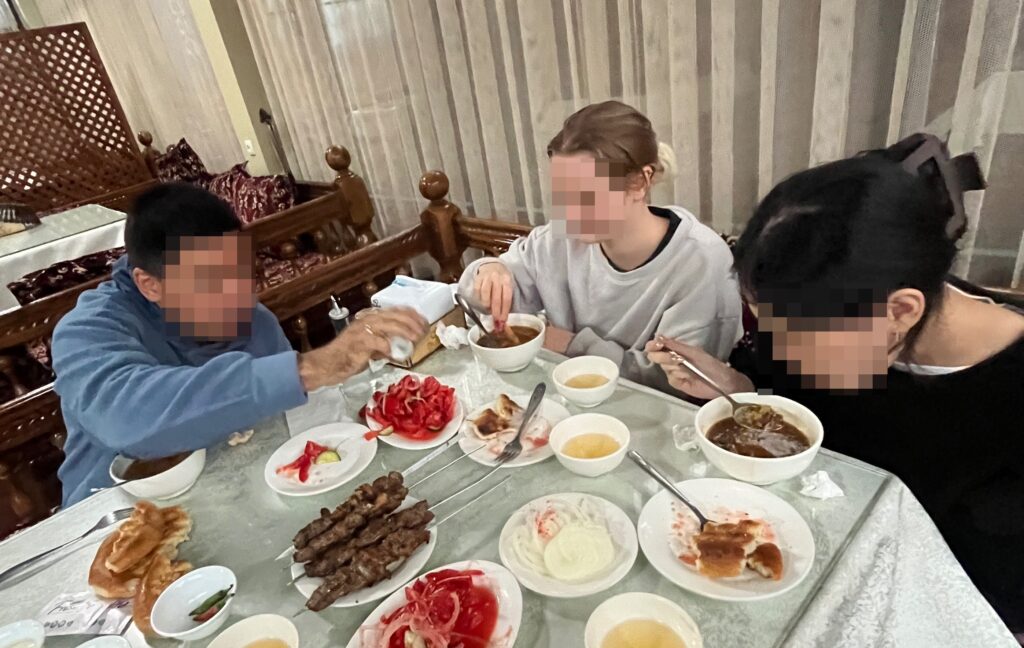
Nobody knows an area better than the people who’ve spent their whole lives there. You might have tried to scope out your new home on Google Maps, Tripadvisor or social media, but in most parts of the world, it’s the places you can’t find online that give you a real taste of the local culture.
Chatting with locals also helps with getting over the feeling of being an outsider that often comes alongside culture shock. Having local friends can help you to feel like you’re a part of the community you live in, and they’ll be much more reliable than Google when it comes to answering any questions you might have about the area and culture.
4. Make use of international networks
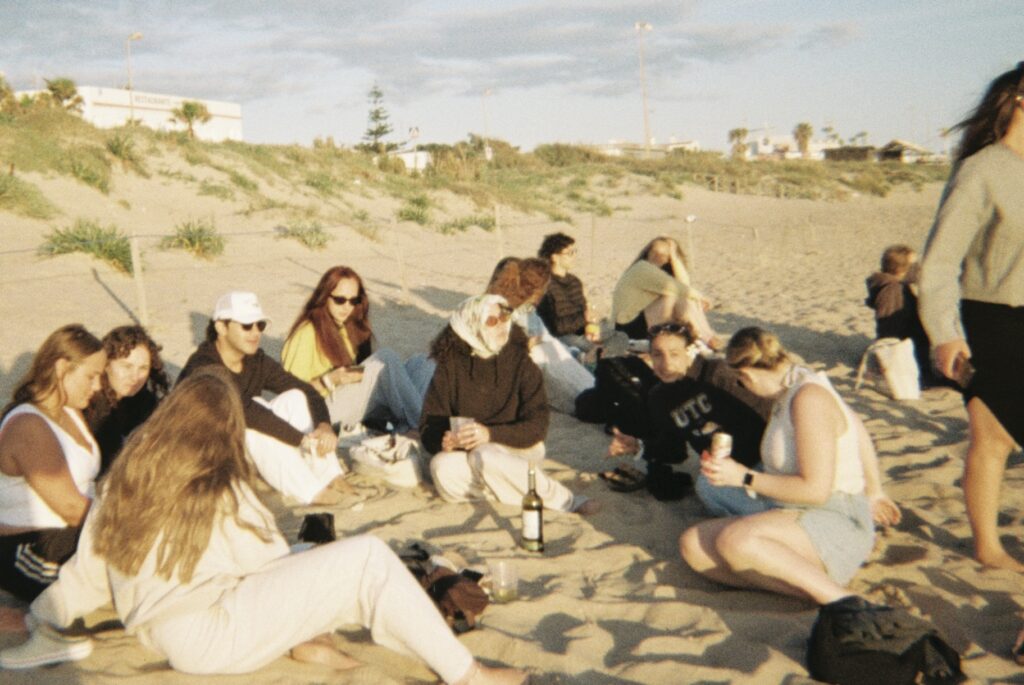
That said, it can also be great to have friends who are in the same position as you. International student organisations such as the Erasmus Student Network (which you can usually still join as a non-Erasmus international student) often have jam-packed weekly schedules with club nights, speed friending events, and trips around your host country, as well as trips abroad like the famous ESN Ibiza trip.
Research the international groups in your host city before you arrive, because the first couple of weeks are often the busiest. Think of it like an overseas Freshers’ Week- themed club nights, bar crawls, and a fun introduction to your new home.
5. Sort important admin ASAP
The visa application process can have a lot of unexpected delays, so it’s important to apply with plenty of spare time. Depending on the requirements of your host country, you might have to apply for things like medical certificates and criminal records, which can take a while to be processed, not to mention getting documents notarised, apostilled or translated. Most countries allow you to apply for your Visa up to six months before you’re set to enter the country, so you’ve got time to get ahead of your admin.
If you’re planning on applying for a study visa after you’ve already moved to your host country, it’s especially important to get everything sorted as soon as possible. You don’t want to end up running out of your tourist-visit allowance and having to leave the country halfway through your placement – it’s best to avoid this option entirely. If you’re doing two separate placements with two separate visas and you’re worried about having enough time to apply for the second one, you could look into applying via the embassy in your first country, or paying for a fast-track service with the UK embassy.
6. Learn some of the local language
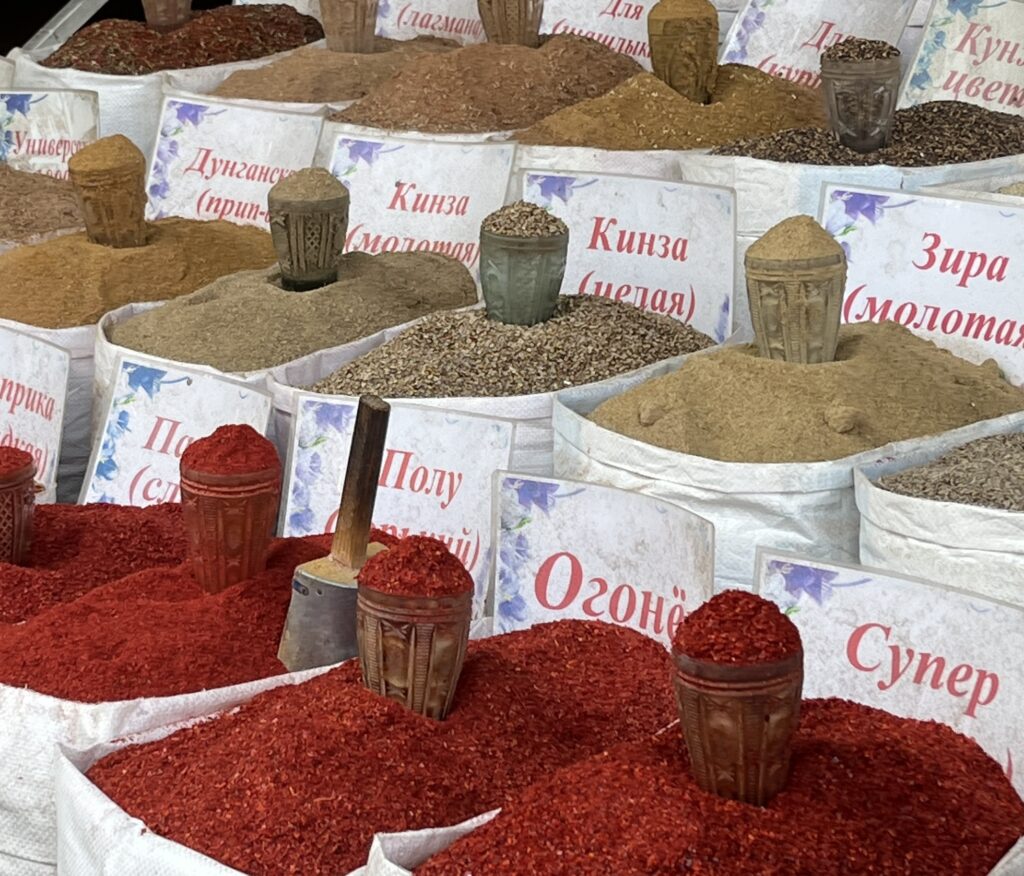
If you haven’t studied your host country’s language as part of your studies, or you’re travelling to a multilingual country, it’s definitely a good idea to learn some daily phrases in the local language. Even if you’re going somewhere where English is widely spoken, locals might be more friendly if you at least try to speak to them in their own language, and it’s often seen as being a bit rude if you assume they’ll speak English.
Simple phrases like hello, goodbye, please and thank you are great, but also think about what you’ll be doing on a daily basis – things like ordering coffee, getting a ticket for the bus, and asking “can I pay with card”, or “can I have a bag” at the supermarket. Have a translator app such as DeepL ready on your phone to deal with any miscommunications.
7. Take some mini toiletries, snacks and local currency
This is the number-one tip to follow for long-haul destinations. After a long day of travel, the first thing you’ll want to do is shower, and the last thing you’ll want to do is go shopping. Bringing some mini toiletries can make all the difference to your first night in your new home; you can feel fresh and clean when you’re meeting your housemates and having that first sleep in your new bed.
Not every country has 24-hour corner shops, so it’s good to have some snacks on hand if you’re arriving late at night. Local currency is another essential, too- not everywhere in the world has adapted to card payments and Apple Pay like the UK has, so it’s best to have a bit of cash on you when you arrive.
8. Travel outside your host city
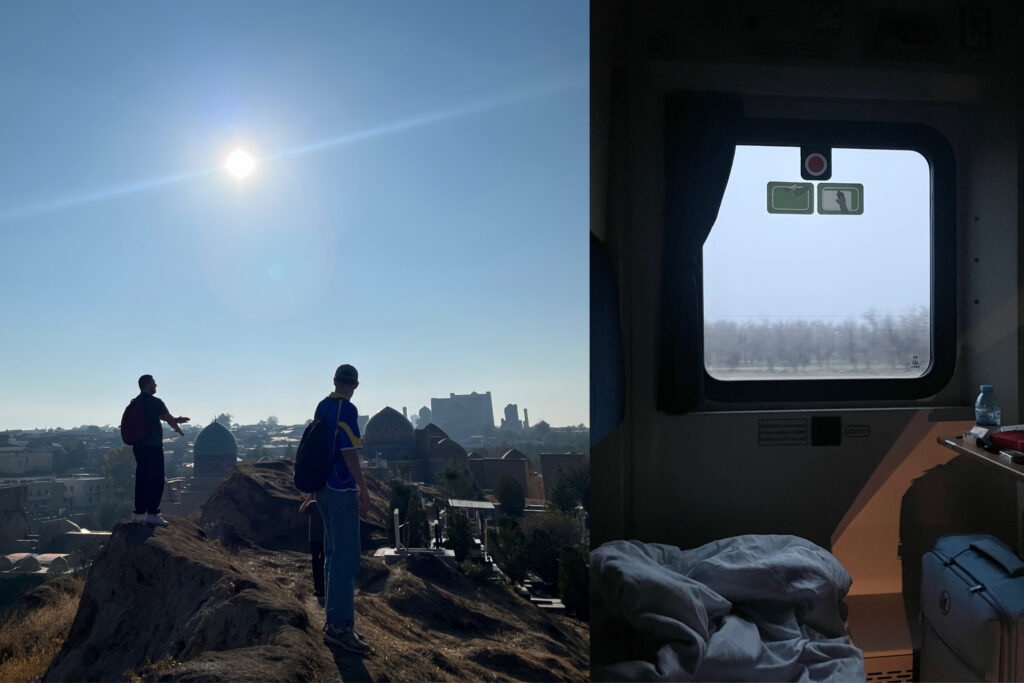
One upside – or maybe downside – of living in the UK is that public transport abroad will almost always seem cheap as chips. Make the most of your host country’s rail or coach networks and use the weekends to explore outside of the city or town you’re living in.
If you’re going further afield, maybe try to put a bit of extra money aside to explore other countries in the surrounding region. Even if you have to fly, it’ll probably be much cheaper than it would be to fly there from the UK. Some regions also have sleeper trains or buses to surrounding countries, which can be a really cool way to get around without spending too much money.
9. Consider unexpected costs in your budget
One of the best things about going abroad and meeting new people is the spontaneous plans, whether it’s meeting people at a club and agreeing to join them for a beach trip the next day, invites to parties at strangers’ flats, or unplanned trips exploring the region around your host city.
With unexpected fun comes unexpected costs, and it’s important to have some wiggle room in your budget so that you don’t have to turn down plans. If your budget needs a top-up and your Visa doesn’t allow you to work in your host country, maybe try looking into online tutoring or other remote jobs.
10. Dive in headfirst

While it’s important to let yourself settle in, don’t wait too long to start making the most of what your host city has to offer. Remember that the end of term will be exam time for a lot of people, and even if you’re not too stressed, your friends might be – some unis such as St Andrews actually count year abroad marks into overall degree classification.
If your placement lasts at least a couple of months, there’s a good chance you’ll also have the benefit of being there outside of the tourist season. Make the most of the emptier streets and lower prices before holidaymakers flood in, and enjoy feeling like a smug local when they ask you for directions.
11. Research cultural differences before you arrive

A little bit of culture shock is probably unavoidable, especially if you’re going somewhere a bit further afield. Even if you’re well travelled, it’s a whole different kettle of fish when you’re living somewhere.
Researching things like food (not just traditional dishes but typical supermarket stock too), clothing, and religion can help with adjusting to your host country. Daily routines are also worth looking into: I had a shock when lectures at my Spanish university started as early as 7:30am and finished as late as 8:30pm.
Another thing to consider is the type of city or town you’re staying in. If you’re going to a bustling European capital, you’ll probably adjust quite quickly after living in London. But if you’re going to a small town or smaller city, you might find it difficult to get used to, especially if you grew up in a big city too. Make sure to stay open minded- smaller towns and cities are often better for cultural immersion and community, even if they might not have as much going on as bigger cities.
12. Pick easy modules over interesting ones
One of the benefits of studying abroad is the opportunity to pick from a wider range of modules than your usual program diet might allow. However, it’s important to remember that other countries’ educations systems can be very different. There’s a good chance you’ll have to get used to new ways of writing essays, new assessment formats, different expectations of student-teacher relationships, and different levels of access to resources. Some unis might not have Moodle-equivalent online platforms and you might have to rely solely on your own notes when it comes to revision time.
With that in mind, you might want to think about picking modules based on how confident you are on their content, rather than on how interesting they sound, especially if your year abroad marks count towards your degree. This advice is doubled if you’ll be taking modules taught in a different language, because studying unfamiliar content can be difficult when you don’t have the specific vocabulary needed. Typing an unfamiliar word into a translator only for it to be the same in English is always a humbling moment.
13. Don’t book your return flights until you’re there
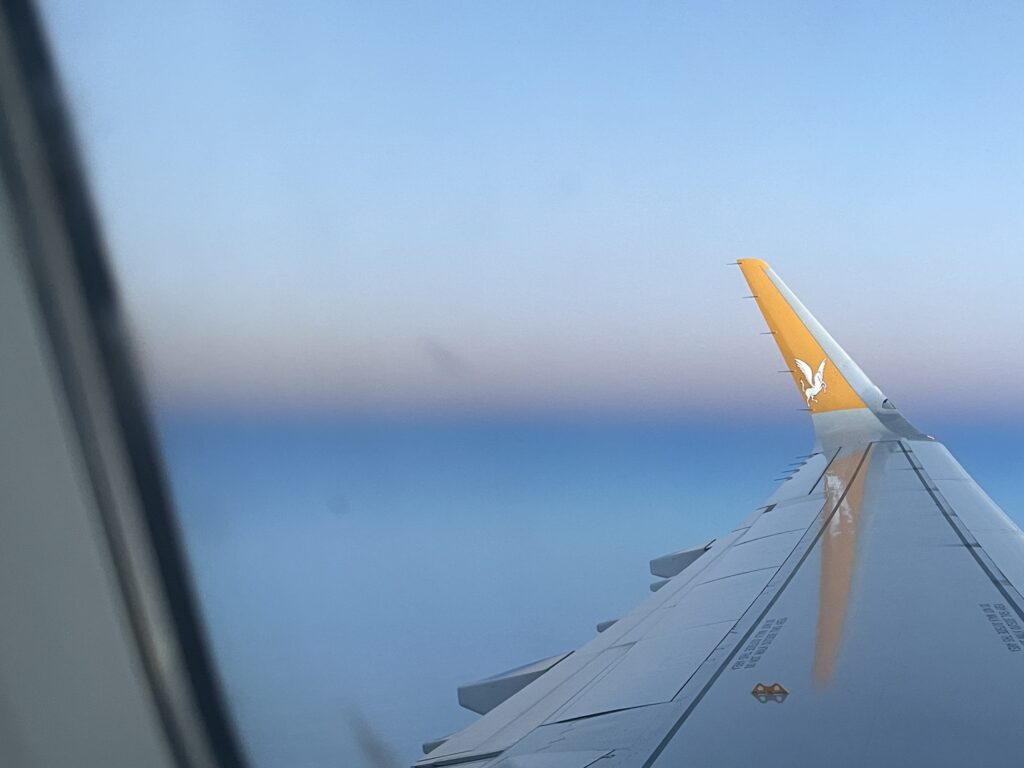
Exam resits, local festivals, friends going travelling – there’s myriad reasons you might want to stay longer than your placement end date. You might also find yourself more than ready to go home, especially if you haven’t been able to make any trips back during your placement.
It’s not a good idea to book your return flight at the last minute, particularly if it’s in the summer or just before Christmas, but the prices are unlikely to change much if you wait until a month or two before your placement ends. If you’re studying, you can also get a better idea of your term dates, which are often listed on official documents to include the entire exam term. Your final exam could be weeks before the official end of term and you might not want to stay too long if everyone else is leaving.
14. Take something that reminds you of home
Finally, don’t forget to take a little bit of something for when you’re craving some familiarity. Even if you’re the most adventurous person in the world, you might get a bit overwhelmed by the culture shock and new people, especially in the first week or so. Whether it’s your favourite mug, a stuffed animal or a jumbo pack of Yorkshire Tea, having something small to remind you of home is never a bad idea.











